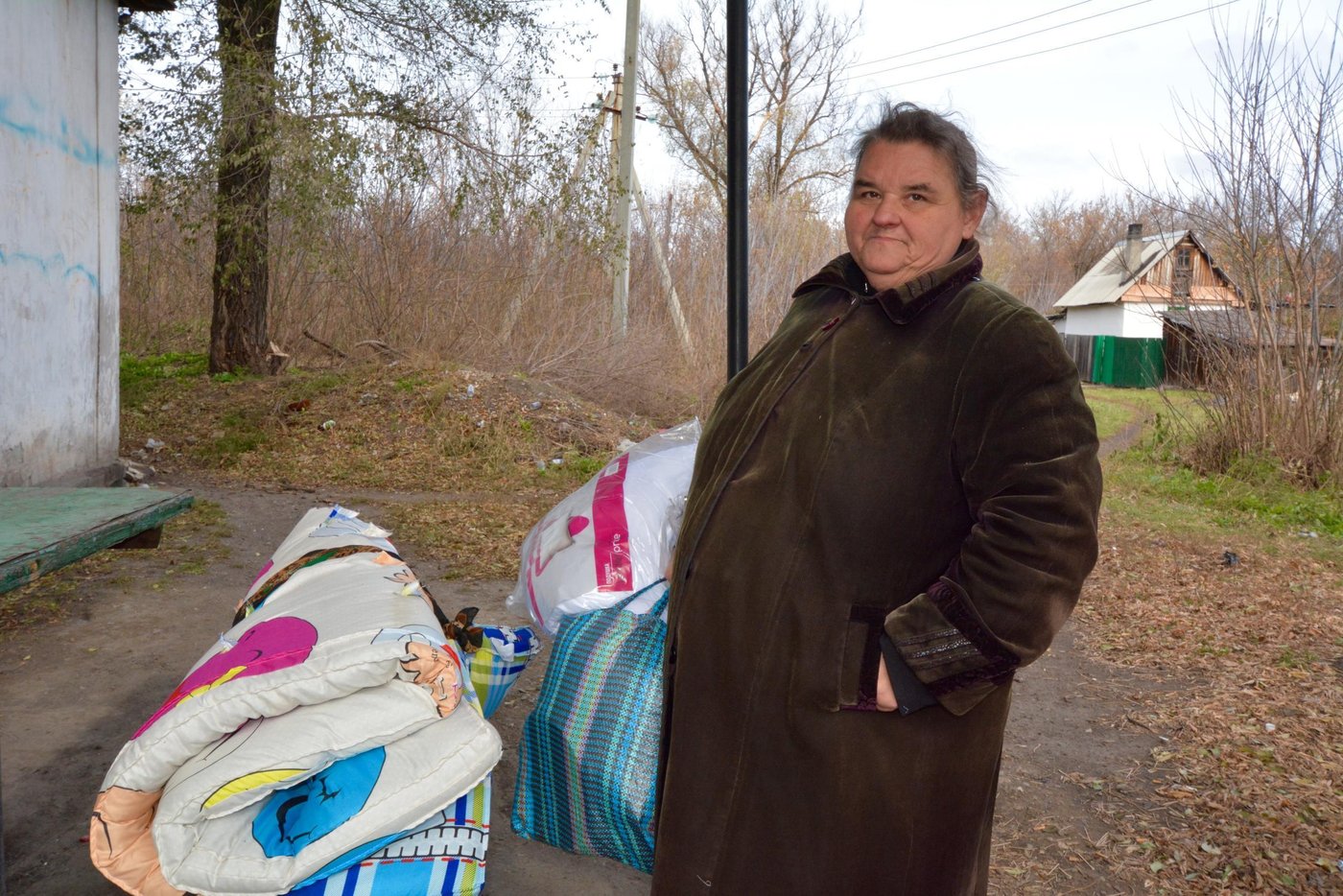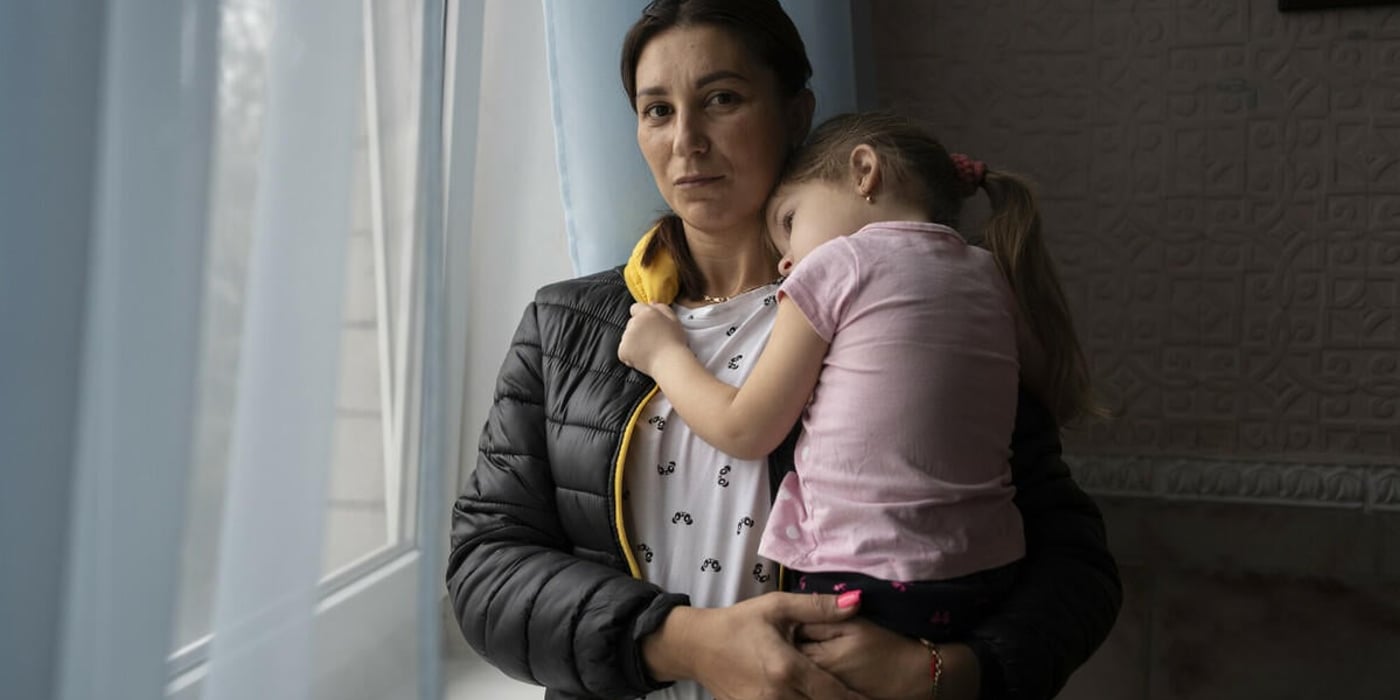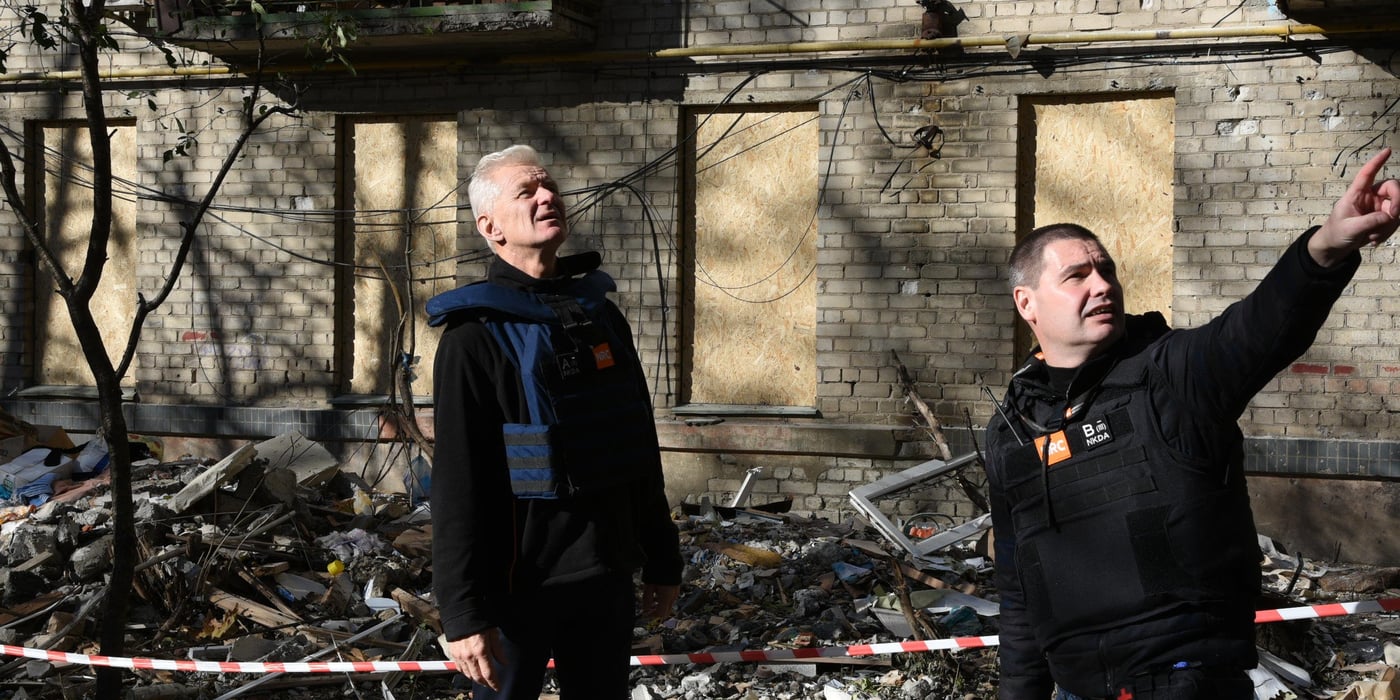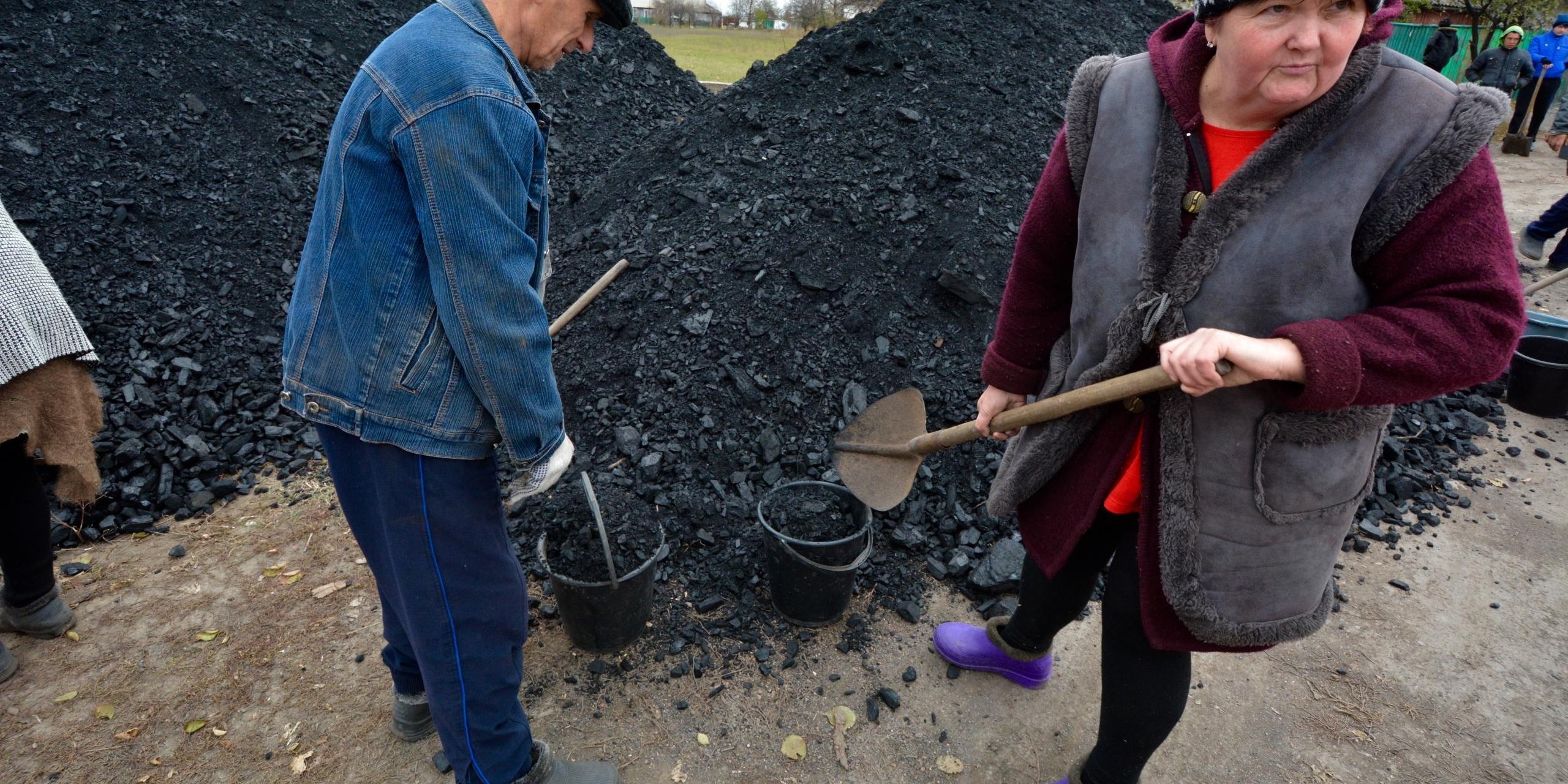
We see no signs of past, more peaceful times while driving on the bumpy roads towards one of the villages in the so-called “grey zone” in eastern Ukraine. Heavily armed soldiers control entry to Zolote 4, a village in the Luhansk region just few kilometres from the frontline on the government-controlled side. The village is only accessible by Ukrainian soldiers, the villagers themselves or aid convoys. Today, the Norwegian Refugee Council is delivering coal to families in Zolote 4 village, located in no-man’s land.
Sounds of war
On the outskirts of the village there is a graveyard, but red signs warn about landmines. Not even the dead are unaffected by this war.
“We can still hear the shelling and shooting almost every day,” says Aleksey (50), one of the many unemployed in Zolote 4 coming to receive coal from NRC. Fearing for his safety, he asks not to be photographed and he only shares his first name.
No place to stay
More than two and a half years after the war in Ukraine broke out, and nearly two years after the signing of the first ceasefire (Minsk I), life remains a daily struggle for survival for many of the 1.7 million registered displaced within Ukraine. Some 3.7 million people are affected by the war according to the United Nations. Over 3 million still require humanitarian assistance. Aleksey is one of them.
“Here in the village there is no work. The mine was closed a long time ago, and people used to go to work in the mine in Pervomaisk, which is now in a non-government controlled area and inaccessible for us. Many people are coming back, as they have not found a better life anywhere else,” he says.
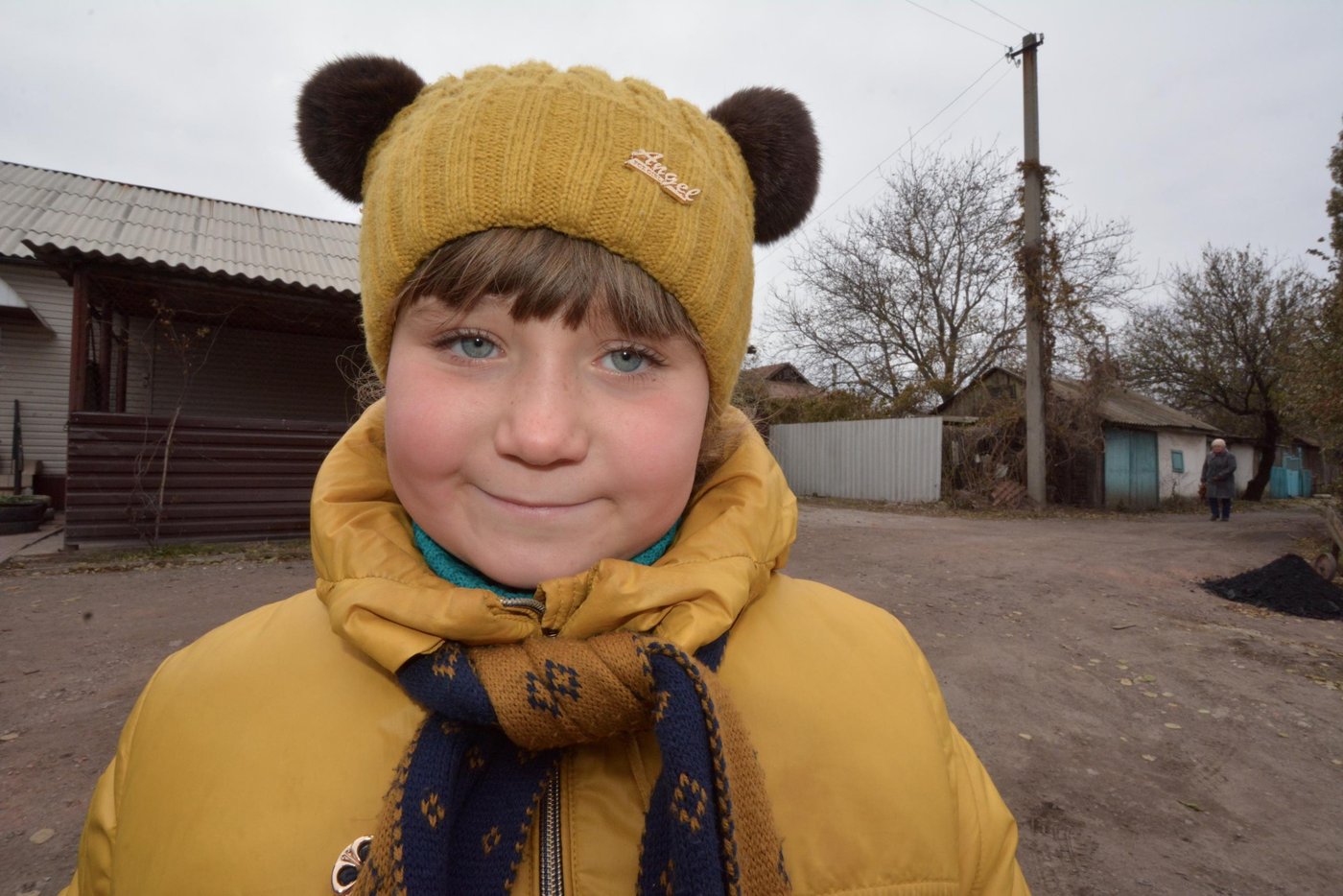
Depending on aid
The trucks are unloading coal as the villagers discuss how they can help each other bring the buckets home. About 500 families live in the village, and the coal and firewood provided by NRC is crucial to protect people from the bitter winter. “I do not know how we would exist without humanitarian aid. Of course, we wish for peace and do not want to be aid-dependent,” says Asya (53), holding hands with her grandchild Angelina (8). The little girl escaped to Zolote 4 village with her family when the conflict erupted in her hometown. She doesn’t like it here, she says.
Trauma of war
The buckets are constantly being filled with coal before they are emptied on large trolleys shared by the people in the village. Rita (56) worked in the coal mine for 36 years. Now she is dependent on aid. She says children in Zolote 4 are suffering from the trauma of living in a military buffer zone constantly affected by the war. “The children in the village differentiate whether it is shooting or shelling, incoming or outgoing,” she says, echoing what others have said. Despite the ceasefire agreed in 2015, the security situation in eastern Ukraine remains tense and volatile. Flare-ups of hostilities continue on a daily basis.
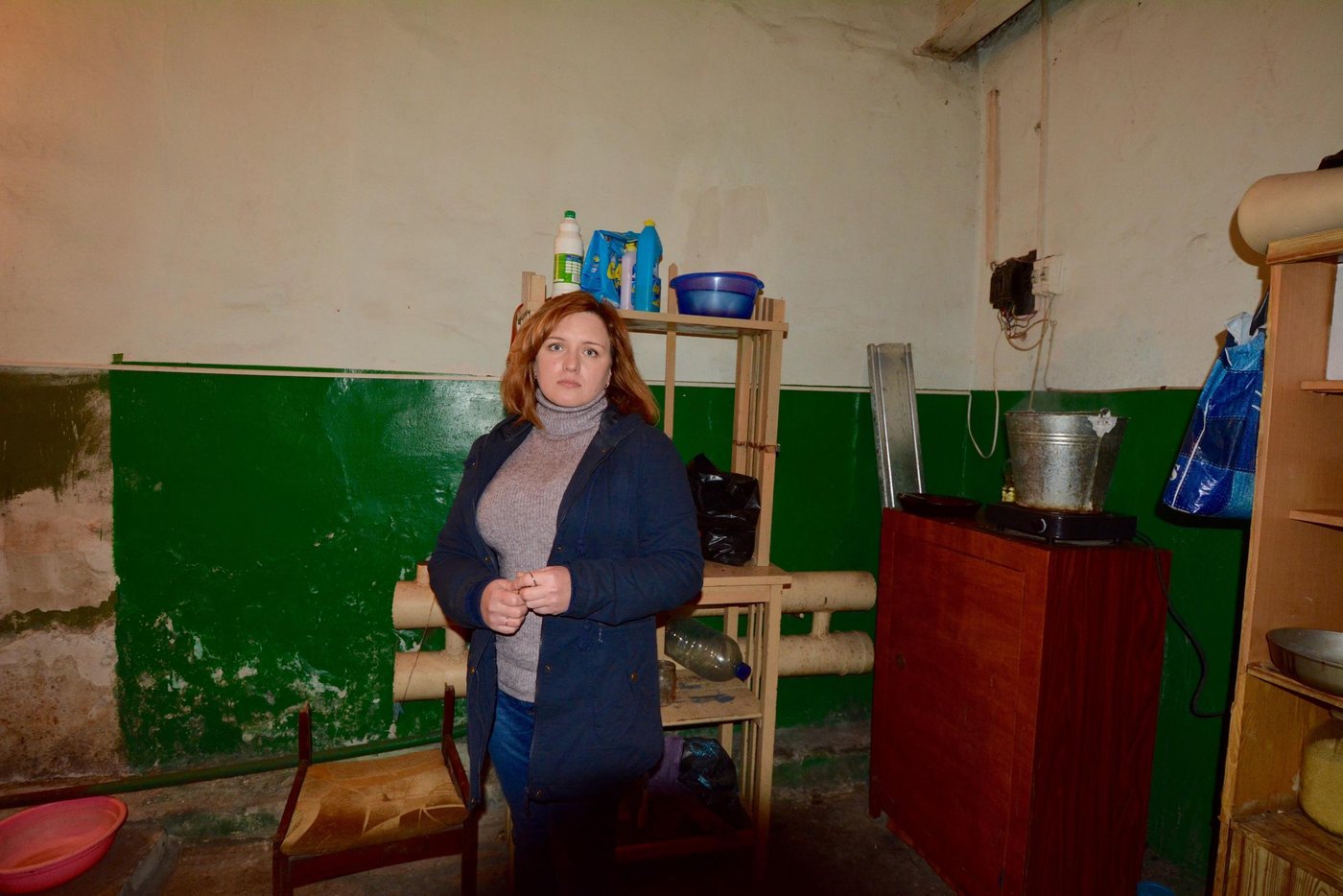
Demographic crisis
For the civilians who remain along both sides of the frontline, life is a mosaic of sporadic fighting, broken infrastructure and lack of access to basic services. Not far from Zolote 4, we find Zolote, a village with empty streets and ruined buildings. An unnerving silence prevails as the NRC trucks carrying household items, such as mattresses and cooking equipment, enter the village. Before the armed conflict, 1,500 people used to live here. The village is close to the contact line between the government controlled areas and areas controlled by non-governmental groups. Despite the ceasefire, the shelling can be seen close to the village, people say.
Homeless
Villagers, mostly older people, line up to collect winterisation kits. Alina (40) is one of few younger people in the queue. She has lived in the village for two years now after she had to leave her hometown of Pervomaisk, only seven kilometres away. “We left our flat in the summer of 2014, when there was intense fighting between Ukrainian forces and armed groups. We took our son, grabbed one bag with some belongings and just ran away,” recalls Alina.
Before the war, she and her husband commuted to Zolote to work in the local coal mine.
However, as they had to flee their hometown, the coal mine`s administration allowed them to live in the basement rooms of the mine’s administration building.
As she opens the door to her “new” home, it is obvious that it is not adapted for permanent living. There is no ventilation, no heating, no water, no gas or water supply. There is no indoor toilet and the gas from the mine makes it hard to breath. The family thought they would live here only for a short while, and that they would be able to return to their hometown as soon as it became more secure.
“Our entire life has totally changed. There was life before and now it is life after the war,” says Alina.
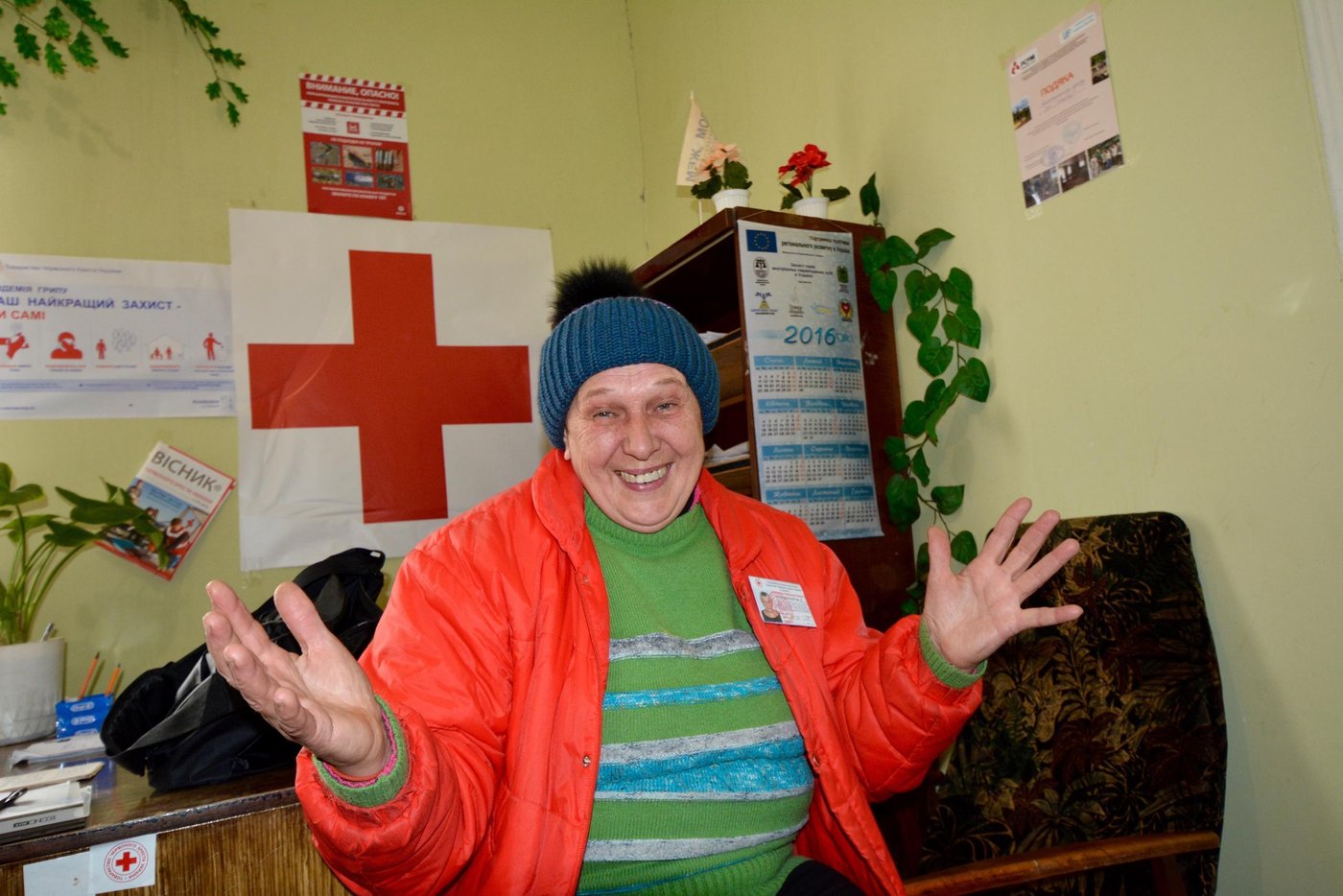
Economic crisis
Like hundreds of thousands of people, Alina and her family are not only affected by the war, but also by the economic crisis that has followed. Much of the industry in the conflict-affected areas of eastern Ukraine has suffered. With the third winter setting in, the acute humanitarian crisis has become a long-term socio-economic catastrophe. People fled with nothing and have had to rebuild their lives from zero. They need everything. Alina doesn’t know how long they will have to live in the basement. But her main concern is that she doesn’t trust the ceasefire.
“We don`t really need anything. Most important is that there is peace and our loved ones are safe and sound,” she says.
No sign of peace
Tatiana and Svitlana are both 58 years old. They agree that the conflict in Ukraine came as a surprise. "I was in shock when it all broke out. We never anticipated that this would happen. I remember well the 22. of July 2014 when the air attack was so intense. Now we hear shelling here. We pray that we will not be affected. It is always hard to know where it is all coming from. I am always afraid that something will happen. Sometimes we think it is a thunderstorm and it turns out to be shelling. Sometimes we think it is shelling and it turns out to be a thunderstorm," says Tatiana.
“I can still hear the shelling almost every day, and I do not see any signs of the conflict being resolved soon,” adds Svitlana.
"Why did this happen? People are fighting for power. And they did not agree who shall have the power. I know there is a ceasefire, but we don’t feel that here. I only see more soldiers and more activity. It is scary," says Tatiana before she wanders away with her new mattress and cooking pot.
